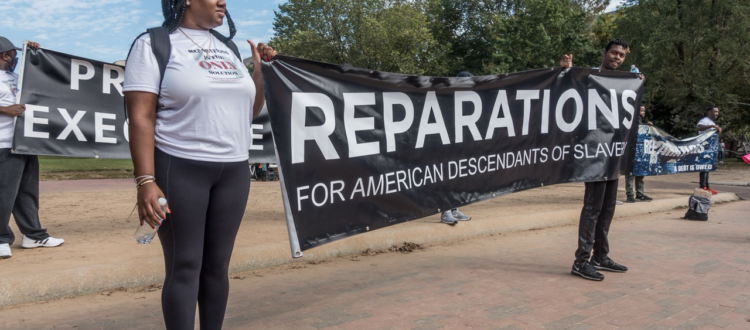Antonio Ray Harvey | California Black Media
Assemblymember Tina McKinnor (D-Inglewood), a member of the California Legislative Black Caucus CLBC, said she plans to meet with the authors of Assembly Bill (AB) 1990 to discuss her opposition to the legislation authored to curb organized retail theft.
On March 24, McKinnor posted on X, urging her colleagues to “Please say no to the AB1990 #StopAct. It authorizes an officer to make a warrantless arrest for shoplifting offenses.”
The STOP Act – the acronym stands for the Secure Transactions and Organized Theft Prevention — was introduced by Assemblymembers Wendy Carillo (D-Boyle Heights), Carlos Villapudua (D-Stockton) and Mike Gipson (D-Carson).
McKinnor and Gipson are both members of CLBC, but the lawmakers have not spoken since the posting.
“I have not talked to him yet, but I have scheduled an appointment with him and Wendy Carrillo when I get back to (Sacramento),” McKinnor told California Black Media on March 30. The legislature is on Spring Recess.
On March 20, Carrillo, Gipson, and Villapudua introduced the bill during a news briefing at the State Capitol. AB 1990 intends to combat the rising actions of organized retail theft across the state that has caused job losses and store closures, Carrillo said in a statement that same day.
AB1990 would allow a peace officer to perform an arrest without a warrant for a misdemeanor shoplifting charge. The officer would have the power to arrest if he or she did not directly observe the shoplifting, providing there is probable evidence the individual has engaged in shoplifting.
“AB1990, the STOP Act, is an urgent call to action in response to the alarming escalation of organized retail theft that threatens the very fabric of our communities. Shoplifting adversely affects both small and large businesses, our state’s economy, and the security and well-being of our neighborhoods,” Carrillo stated. “It is our responsibility to confront a problem that has been increasingly worsening over time. In my community of Eagle Rock, we have noticed an uptick in organized retail theft with community groups bemoaning stores being broken into and employees being robbed on a weekly basis.”
Before legislators left Sacramento for the holiday break, CBM contacted Gipson’s office on three different occasions for a response to McKinnor’s concerns, but to no avail.
However, Gipson, posted about the bill on X.
“I was honored to join my colleague @AsmCarrillo’s press conference as she unveiled AB 1990, otherwise known as the STOP Act. This important legislation would crack down on organized retail theft that is plaguing communities across the state,” Gipson wrote.
McKinnor countered that AB 1990 is “Bad for black and brown folks.” She said the bill is along the lines of California’s existing “Stop and Frisk” law, the “Terry Stop.”
In California, the stop-and-frisk law, commonly known as a “Terry stop,” named after the Supreme Court case, Terry v. Ohio (1968) allows an officer to detain an individual suspicious of criminal activities.
“The Terry Stop is still legal in the state of California,” McKinnor said. “Under stop and frisk, police cannot physically restrain and (handcuff) you. They can only detain you, which is enough.”
Under existing law, to make a warrantless arrest stemming from a misdemeanor that includes retail theft, the crime typically has to be committed in the police officer’s presence.
Current law also requires that the officer issue a citation and release the arrested individual rather than booking the person, Carrillo’s office explained. AB 1990 creates a pathway for a peace officer to use his or her judgment to arrest and book a suspect involved in shoplifting.
“The escalating trend of retail theft across our great state, particularly in urban areas such as my district, not only undermines the safety of our communities but also poses a significant threat to our economy,” Gipson stated in a press release. “The STOP Act is a crucial step forward in our fight against organized retail crime. Together, we can protect our communities, support our local businesses, and ensure California remains a place where safety and prosperity go hand in hand.”
A recent report that includes statistics from the Los Angeles Police Department states that there was an 81% increase in shoplifting incidents from 2022 to 2023 — from 6,585 cases to 11,945, indicating a significant retail crime surge in California’s largest city. The Los Angeles County District Attorney’s Office also recently reported that it filed over 200 cases of organized retail theft in 2023, according to Carrillo’s office.
“California businesses need stronger support from leaders in Sacramento to address the dangerous levels of retail theft seen over recent years,” Villapudua stated. “Many shops have been left to their own devices to protect their stores and keep customers safe, and the current method of enforcement requires peace officers to enforce against theft with one hand tied behind their back.”
According to a January 2024 report by the Public Policy Institute of California (PPIC), the state’s arrest rate was historically low in 2022. About 781, 000 arrests were made during that year. During the pandemic, misdemeanors arrest dropped 31.2%.
The PPIC also noted that racial disparities in arrests decreased in the state but continued to remain significant for Black and Brown Californians. The Black arrest peaked at 18,856 per 100,000 residents in 1988, the report stated. By 2022 it had dropped from 13,260 to 5,5596 per residents.
The Latino arrest rate was 2,246 per 100,000 residents in 2022 while the White arrest was 1,862. Of the 15 largest counties in the state, the Black arrest rate was 9.1 times higher than the White rate in San Mateo County. African Americans make up 5.5% of the state’s 38-plus million residents.
“I think AB 1990 is an overreach and it does not give people the right to due process,” McKinnor told CBM. “It is just a bad law that we don’t need.”











